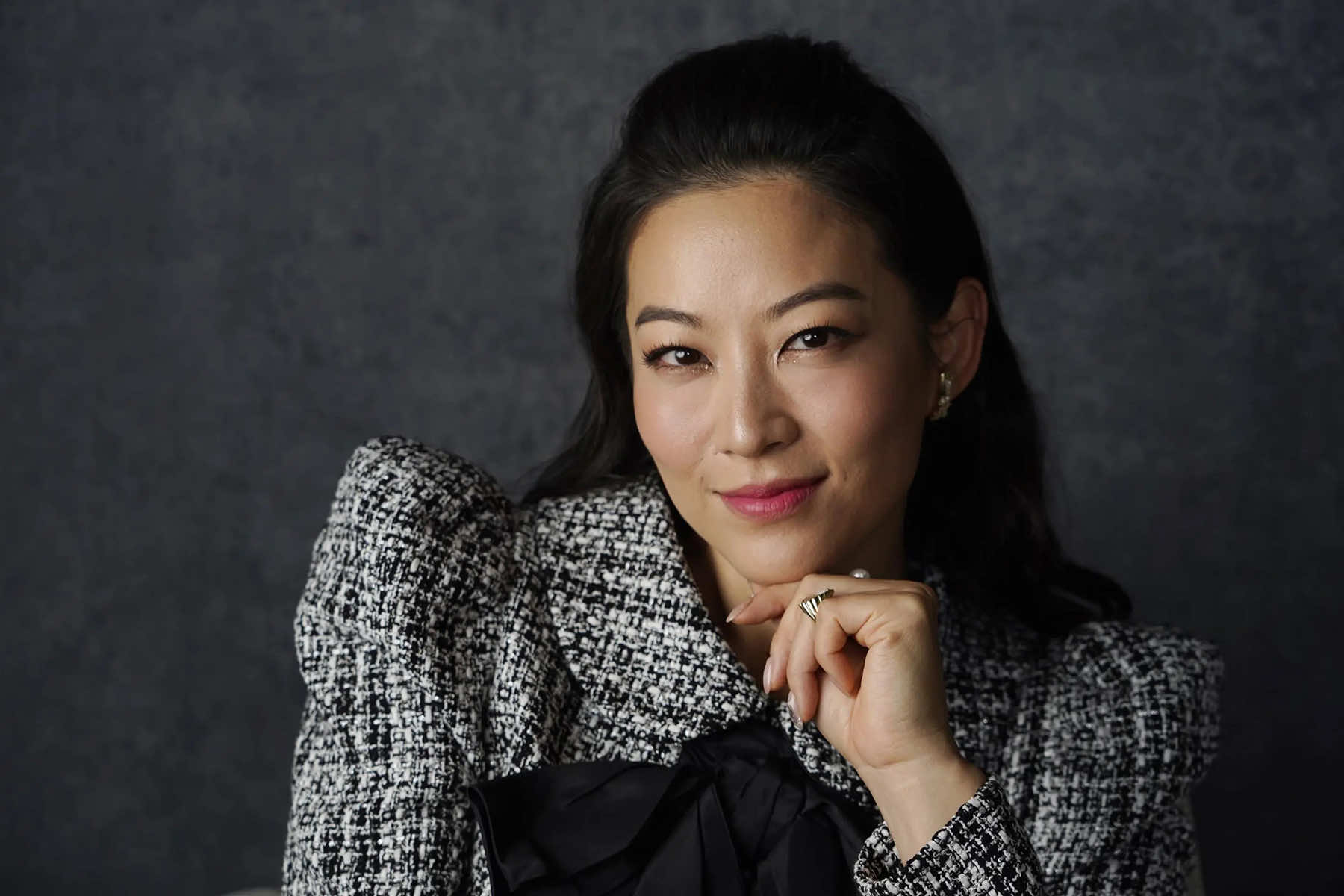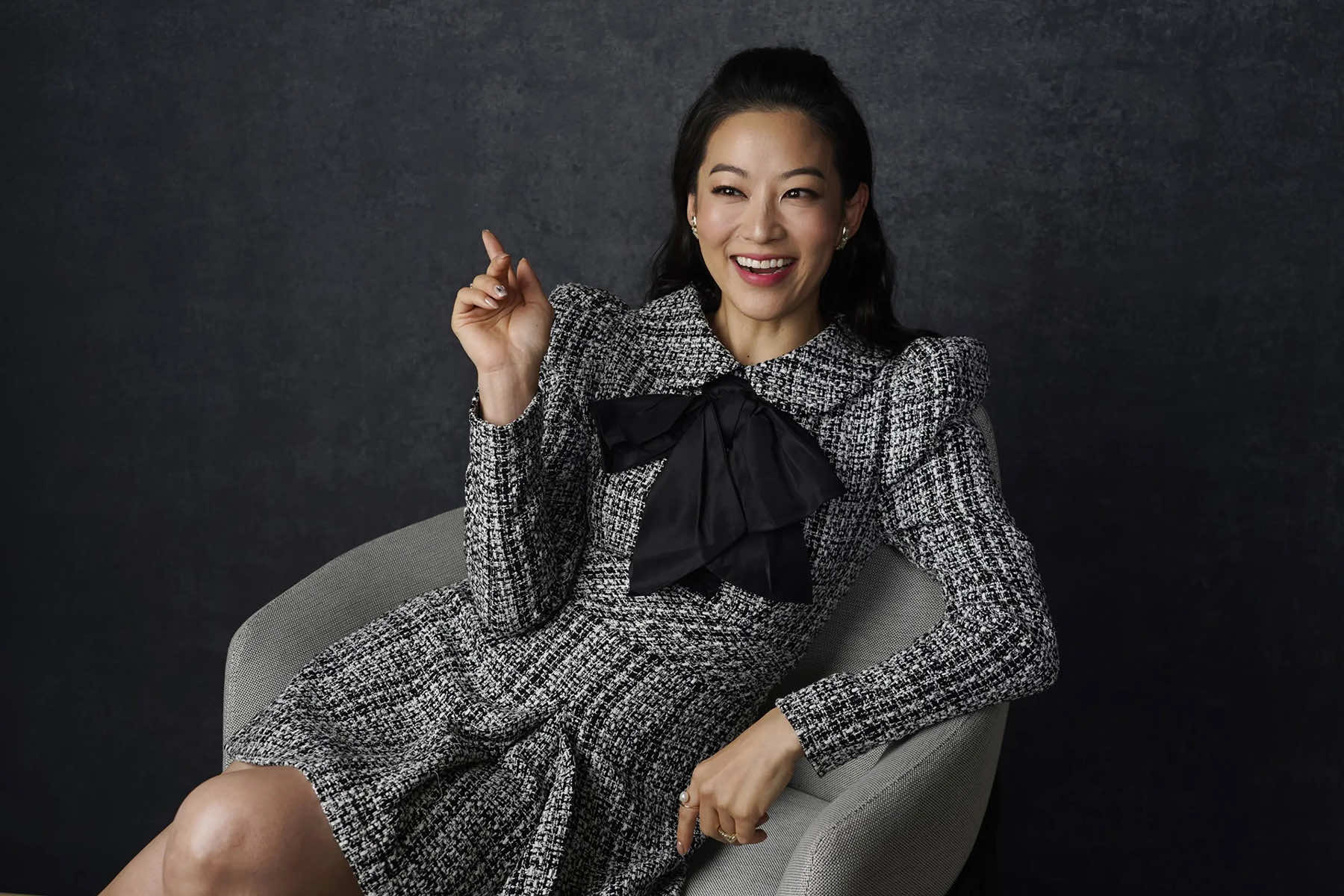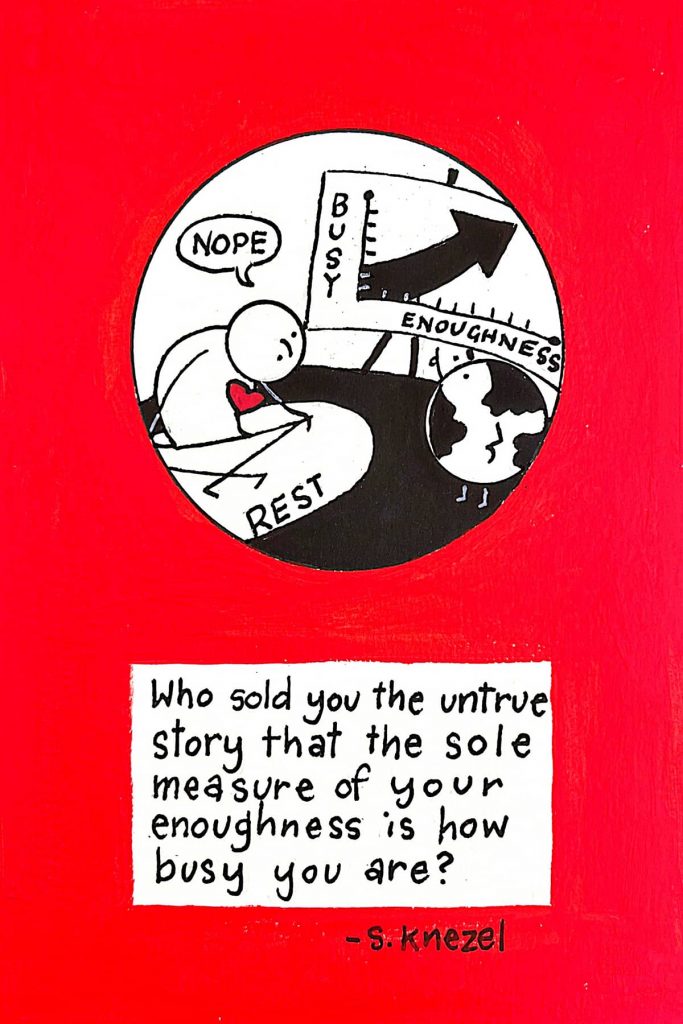
“I had a six-year-old kid run up to me, grab my hand, and say, ‘You’re Rumi. You’re the speaking voice for Rumi.’ And I reply, ‘Wait, you’re a six-year-old boy? How do you know that?’ And he says, ‘I did my research.’ Then the mom adds, ‘Oh yeah, he’s seen the movie 17 times. He knows everything. He Googled you guys and knows your faces.’ … But one of the best responses I got was from a seven-year-old boy who said, ‘I love the ending scene when they all sing, and they learn that you have to work together, and you can do anything with each other.'” – Arden Cho, voice of “Rumi”
A six-year-old boy in California memorized the cast list of “KPop Demon Hunters,” the hit animated film released by Netflix earlier in July. After watching it, he had a chance encounter with actor Arden Cho, who voices the film’s central character Rumi, and identified her not by face, but by voice.
The boy is not alone. According to Cho, young children have become some of the film’s most informed and loyal fans. Not just consuming the music and visuals, but absorbing its central moral arc.
Such responses reflect a growing phenomenon. American children are internalizing the language, values, and identity frameworks of Korean cultural exports more deeply than they are the narratives available in domestic media.
“KPop Demon Hunters” is a record-breaking story built entirely on Korean aesthetics, themes, and worldview. Its success is not an outlier. It is a data point in a larger shift of global cultural influence. The United States is no longer the primary exporter of aspirational content — and in many cases, no longer trusted to provide it.
Korean cultural power has been building steadily for over two decades, but its sharpest inroads into U.S. life have come during the political instability of the Trump years. What began with music and fashion has matured into ideological influence, especially among young Americans.
The United States, once synonymous with innovation in film, music, and moral messaging, is no longer perceived as culturally stable. Since the start of Trump’s second term, the federal government has not only abandoned global partnerships, but has turned inward with nationalist messaging and aggressive cultural retrenchment.
American children — growing up in schools where books are banned, immigrants are scapegoated, and mass shootings remain unaddressed — are consuming imported stories that center cooperation, shared identity, and emotional resolution. South Korean entertainment, intentionally or not, now offers an alternative framework for how young people understand struggle, beauty, discipline, and community.
Where the United States once exported the mythology of freedom, Korea now exports the mythos of unity.
The shift has real consequences. Soft power, defined by political scientist Joseph Nye as the ability to attract and persuade rather than coerce, is not an abstract concept. It plays out on streaming platforms, concert stages, and TikTok feeds. Korean narratives are winning the trust and emotional allegiance of American youth at the exact moment American cultural institutions are fracturing under political pressure.
Hollywood, once the flagship of American soft power, has grown unstable. Labor strikes, ideological censorship, and franchise collapse have reduced its output to risk-averse content and nostalgic recycling.
Meanwhile, Korean studios are producing genre-bending, visually precise, emotionally charged content that meets the emotional intelligence of young audiences without diluting culture and heritage.
This is not a coincidence. Korean cultural institutions — including the Ministry of Culture, Sports and Tourism — have invested heavily in promoting exportable, high-quality entertainment since the early 2000s. The results are global.
In contrast, U.S. cultural policy under Trump has centered on restriction, not expansion. Foreign students and artists face travel barriers. Multilingual education programs have lost funding. Trump’s campaign rhetoric continues to frame cultural pluralism as a threat rather than a national asset.
The net effect is that American soft power is being surrendered. Not through sabotage, but through apathy.
Children are not passive observers of culture. They encode language, identity, and ideology at a rapid pace. The seven-year-old who understands the thematic climax of “KPop Demon Hunters” — not as entertainment, but as ethical instruction — is a case study in how media shapes moral imagination.
That instruction is now coming from abroad.
American political discourse continues to treat culture as a battlefield rather than an opportunity. The Trump regime’s efforts to police educational content, ban diverse narratives, and restrict immigration have weakened the moral credibility of the country’s own cultural institutions.
As Korean entertainment exports portray collaboration and belonging across generational and gender lines, the United States exports isolation, division, and increasingly – resentment.
This is not a matter of popularity. It is a matter of narrative authority.
The backlash to foreign culture, including right-wing complaints that K-pop promotes “globalist brainwashing” or undermines traditional American values, reflects a deeper anxiety.
Korean culture is succeeding not because it dilutes itself to fit the Western market, but because it refuses to. Its global appeal stems from its specificity: Korean language, fashion, gender dynamics, and even religious motifs remain intact. The audience adapts, not the material.
By contrast, American entertainment has hollowed itself out in search of the broadest possible reach. The result is content that fails to resonate with depth or clarity. Children raised on vague platitudes and contradictory messaging are now responding to stories with sharper focus, even if they arrive subtitled. In many cases, they prefer it.
The impact on youth identity is already visible. Online communities are saturated with children and teens adopting Korean vocabulary, aesthetics, and storytelling conventions. They emulate the work ethic of Korean idols, quote dialogue from Korean dramas, and study language without institutional prompting.
These are not passing fads. They are identity-building exercises, a developmental process once driven by Hollywood, now outsourced. Cultural displacement is not a future concern. It is happening now.
For decades, American soft power was tied to the idea that its cultural exports, like music, film, fashion, and technology. They carried with them a promise of individualism, innovation, and justice.
But under Trump, the cultural message has turned toxic. He has recast American exceptionalism as a product of exclusion: greatness through border walls, through deportations, through the reassertion of White Nationalism as public policy. As a result, the aspirational arc of American culture, flawed but once functional, has snapped.
To children watching from inside this country, especially those in immigrant families or racially diverse households, the cultural message from the White House is one of hostility.
Korean media, by contrast, delivers stories where underdogs win not by domination, but by connection. Trauma is acknowledged. Sacrifice is honored. Beauty is earned. And in a political era defined by violence and paranoia, these values carry weight.
Cho, speaking about her experience interacting with children, emphasized that the message is being received clearly.
“These really young fans understand the story,” she said.
That clarity stands in stark contrast to the emotional incoherence American children encounter elsewhere in their daily lives. A society that tells them to be proud of a country that does not protect them. Or to embrace individualism in the face of communal collapse, just to achieve in a system where equality is systematically denied.
Cultural exports offer more than escapism. They offer scripts for life.
The boy who learned about togetherness from “KPop Demon Hunters” is navigating an American society where mass trauma is normalized and unresolved.
School lockdown drills, racial profiling, and anti-immigrant rhetoric form the background of daily life. U.S. media, once a mechanism to process and respond to these realities, now often denies them entirely or exploits them for partisan gain.
In this context, Korean entertainment is not just alternative entertainment. It is emotional infrastructure.
The soft power gap is not theoretical. It is measurable in streaming numbers, in fan demographics, in language acquisition patterns, and in the shifting moral landscapes of youth.
The decline of American soft power under Trump is not merely a diplomatic failure. It is a cultural forfeiture, and one that will shape the identity formation of an entire generation.
South Korea did not seize this influence through manipulation or imperialism. It offered inspirational stories. America responded with brutality and censorship.
The lesson is clear, regardless of age. When a society stops believing in its own moral arc, someone else will write it.
© Photo
Chris Pizzello (AP)















